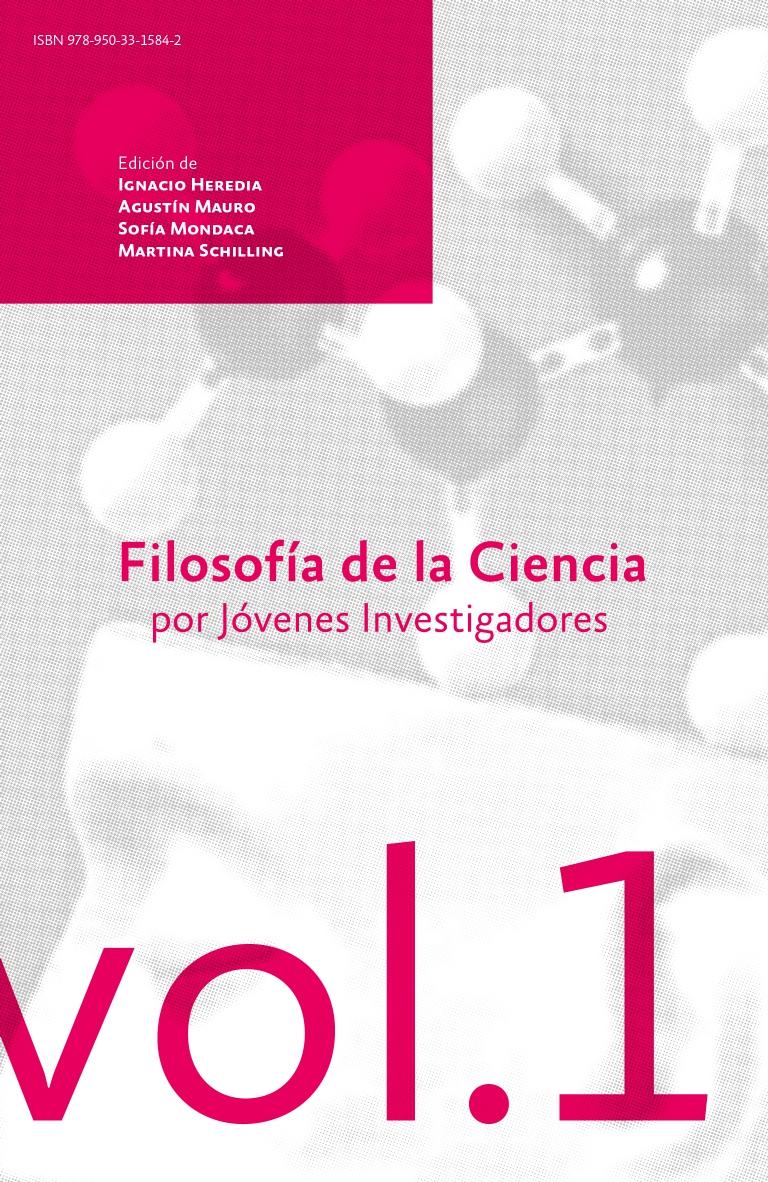Philosophy of Science by Young Researchers
Keywords:
philosophy of science, researchers, feminist epistemology, Latin American epistemology, science studies, technology studies, philosophy of computing, philosophy of modeling, philosophy of cognitive science, Universidad Nacional de Córdoba. Facultad de Filosofía y Humanidades. Área de Publicaciones., theory of knowledgeSynopsis
Philosophy of Science by Young Researchers Vol. 1 contains a selection of papers presented at the First Conference of Young Researchers in Philosophy of Science, held in Córdoba in June 2019. The publication is the result of the joint work of the members of the research group “Modeling, Simulating, and Experimenting: An Epistemological Analysis from Scientific Practices” (funded by SECyT and based at the María Saleme de Burnichon Research Center, School of Philosophy, FFyH, UNC), in particular, students and graduates who have formed and run the organizing, evaluation, and editing committees throughout the year.
The selected works were evaluated by a student and a teacher, according to the specific topics addressed in each case. The aim of this decision is to build a horizontal and collaborative space between the different levels that make up our work teams. This edition aimed to promote philosophical discussion in the broad field of the philosophy of science, from and for young researchers, and responds to the desire to consolidate our philosophical community, strengthening local production by young researchers. Broadening the spectrum of discussion enriches us as a community and allows us to forge new dialogues between fields that are still not as close as they could be. We are confident in the academic and political power of this joint effort.
The book is part of the CIFFyH Collections, an initiative of the María Saleme de Burnichon Research Center (FFyH) in conjunction with the FFyH Publications Department, which seeks to strengthen the production and dissemination of the Center's research groups' work, encourage the participation of students, graduates, and teachers in the production and circulation of knowledge, and create institutional spaces that enable such circulation.
Chapters
-
Prologue
-
Feminist and Latin American epistemology
-
Doing science as a guinea pigThe problem of perspective and experimentation in feminist epistemology
-
Comments on “Doing science as a guinea pigthe problem of perspective and experimentation in feminist epistemology” by Ignacio Heredia
-
Absences and denials concealed by the homogeneous category of woman
-
How to understand social identity from a non-essentialist perspectiveAn interpretation of social demands as units of analysis of Ernesto Laclau's populism
-
Situated knowledgean analysis of its implications and projections. Commentary on "Knowing from the body" by Estrella Campos
-
Science and technology studies
-
On the social nature of scientific knowledge
-
The magazine Ciencia Nueva (1970–1974) and (some) debates of the PLACTED
-
How to mix water and oil, or on the mediation of the Revista Ciencia Nueva magazine in the creation of the PLACTED debates
-
On why and how to abandon the distinction between basic science and applied science
-
Rethinking the way things are in science, technology, and innovation
-
Brief critical review of Ian Hacking's concept of the “interactive class”
-
Dynamic nominalism
-
A discussion about non-humansthe Latour-Bloor debate on the principle of symmetry
-
Philosophy of computing and modeling
-
Specification in programmingsemantics and flexibility
-
If it ain't broke, don't fix it Comment on "Specification in programming: semantics and flexibility" by Xavier Huvelle
-
How do you get to know a black box? Models as complex systems in early cybernetics
-
Commentary on "How do you get to know a black box? Models as complex systems in early cybernetics" by Andrés Ilčić
-
Notes on reliability in climate change predictions
-
I know that I know nothing, which is why I make models Commentary on "Notes on reliability in climate change predictions" by Julián Reynoso
-
Philosophy of cognitive science
-
The environmentalist approach to physical education and its theoretical frameworksome conceptual clarifications
-
Commentary on "The environmentalist approach to physical education and its theoretical framework: some conceptual clarifications" by Santiago Marengo
-
The yipsan analysis of how to lose a skill
-
Commentary on "The yips: an analysis of how to lose a skill" by Sofía Mondaca
-
Commentary on “Extended Mind and Literacy” by María Fissore
-
General philosophy of science
-
Two ways to be realistic about experimental entities
-
Commentary on “Two ways of being realistic about experimental entities” by Agustina Maini
-
Commentary on "Pythagorean tuning as one of the ways of understanding mathematics" by Gerardo Graffignano
-
Theory of knowledge
-
I experience what I experience, but do I know what I experience?
-
Comment on “I experience what I experience, but do I know what I experience?” by Tamara Nizetich
-
The question of the rules of the game Commentary on “The rationality of science and ethics” by Santiago Vrech

Downloads
Published
Series
Categories
License

This work is licensed under a Creative Commons Attribution-NonCommercial-ShareAlike 4.0 International License.


